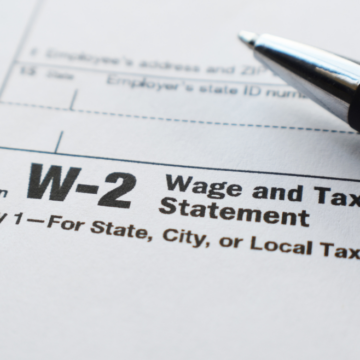Let’s look at some tax saving tips that may help you save money on your taxes. Generally, the lower your taxable income, the less tax you will need to pay.
Tax withholding exemptions.
These will increase or decrease your take-home pay based on the number of withholdings you claim. You can change these exemptions by filing a Form W-4 at work. You may consider increasing your exemptions. This will reduce your tax refund and add more money to each paycheck. Be careful not to increase your exemptions too much or you could owe money to the IRS at the end of the year.
Tax deductions.
These are expenses that lower your taxable income. Some common deductions are:
- Medical and dental expenses
- Business expenses
- Mortgage interest paid
- Education expenses
- Dependent children
For more information on deductions, visit the IRS at www.irs.gov or talk to a tax professional.
Tax credits.
Tax credits are also expenses that reduce the taxes you owe. Think of them like coupons for the tax. Let’s say you owe $5,000 in taxes and have a tax credit for $2,000. Now you only owe $3,000. There are several tax credits. These include:
- Childcare
- Homebuyer credit
- Energy credit
Credits can change from year to year. Keep up to date on the latest information by visiting the IRS at www.irs.gov.
Tax-deferred retirement accounts.
Theseallow you to save pre-tax dollars in a retirement account. Popular accounts are IRAs, 401(k)s, 403(b)s. Contributing to these accounts lowers your taxable income. Keep in mind this is a tax-deferred option. This mean you won’t have to pay taxes on the money until you take them out when you retire. However, when you retire, you may move into a lower tax bracket than the one you were in when you were working full-time.
Pre-tax savings accounts.
These are usually employer-sponsored plans that take funds from your check before taxes. The funds can then be used for expenses like medical or childcare. Before choosing one of these accounts, be sure you know some details. Some plans roll unspent funds into the next year, whereas other plans have a “use it or lose it” policy.










